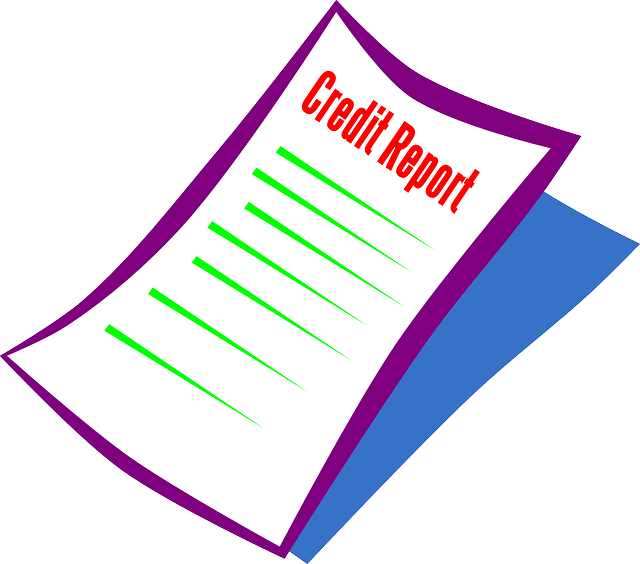What is Collateral?

Chances are you’re already familiar with collateral, but even if you aren’t, it’s very straightforward. Collateral is an asset used to help secure a loan. If the borrower defaults, the lender collects the collateral to cover the lost costs.
In most cases, lenders prefer business assets that are worth the total cost of the loan. Banks typically require more collateral than online lenders, but you will usually need to provide some collateral in your business loan.
Secured Loans vs. Unsecured Loans
When you pledge collateral, you take out a secured loan, meaning the collateral provides a certain level of security for the lender. Unsecured business loans don’t have collateral.
What Counts as Collateral?
Lenders prefer business assets that they can quickly turn into cash, known as liquidation. For that reason, lenders’ most preferred assets are cash or securities, such as treasury bonds, certificates of deposit (CDs), stocks, and corporate bonds.
Other collateral includes high-value physical assets such as business equipment, vehicles, and commercial real estate. Let’s look at some types of collateral used in business loans.
Types of Collateral
Any business asset that carries a measurable value and can be liquidated into cash could serve as collateral. The specific collateral comes down to the loan type, lender, and creditworthiness.
Here are some examples of items used as collateral in business financing:
- Equipment.
- Vehicles.
- Heavy machinery.
- Real estate and buildings.
- Inventory.
- Accounts receivable and future sales.
- Cash reserves.
- Securities.
- Personal assets.
How Much Collateral Do I need for a Business Loan?

How much collateral you need depends on the type of loan, the amount you’re requesting, your credit history, current business debt, and the lender.
In most cases, lenders want assets that can cover 100% of the loan amount. In addition, you should be aware of how lenders value physical assets.
Lenders use a metric called Loan-to-Value (LTV) ratio when deciding how much risk they feel comfortable with. Let’s say the asset’s appraisal value is $50,000. The lender is unlikely to lend the full appraisal value, instead offering an 80% LTV. Your loan amount is then $40,000.
Lenders will generally lend a higher LTV on highly liquid assets used as collateral. Lenders do this to account for the costs of selling the asset and potential depreciation during the loan term. The exact LTV percentage depends on “The Five Cs,” which are:
- Credit history.
- Capacity for repayment.
- Capital.
- Collateral.
- Conditions (interest rate, loan term, and amount requested.
Collateral Requirement by Small Business Loan Type
The specific collateral you need depends on the type of loan you requested. Let’s review how collateral acts in different small business loans.
Equipment Loan
Equipment financing is when you take out a loan to purchase business equipment. Equipment loans are “self-collateralized,” meaning the asset you’re financing serves as the collateral. You might be familiar with other self-collateralized loans like auto loans or mortgages.
When you apply for an equipment loan, you need to include the invoice for the equipment. If approved, the lender sends the money to the seller for the equipment invoice.
The new acquisition is delivered and installed, and you repay the loan in fixed monthly payments. In the unlikely event you default, the lender repossesses the financed equipment.
Merchant Cash Advance
With a Merchant Cash Advance, a small business gets an upfront sum, which you pay back with future credit card sales. The amount you receive is based on your daily credit card/debit card sales.
You repay the loan with a fixed percentage of your future credit card sales, so in a way, those projected sales act as collateral. You usually don’t need to offer any additional collateral with this financing program.
Small Business Administration (SBA) Loans
The Small Business Administration is a government agency that oversees the SBA loan program. Since the government partially backs SBA loans, lenders can offer high borrowing amounts with the best interest rates and repayment terms available on the market. SBA loans are often considered the gold standard of small business financing.
There is a wide range of SBA loan programs, including SBA 7(a) loans, the CDC 504 Loan, Microloans, and Economic Injury and Disaster (EIDL) loans. Some SBA loans carry collateral requirements, and others don’t.
Any SBA 7(a) loan over $350,000, for example, carries a collateral requirement where the asset needs to cover the total cost of the loan. Other SBA loans might not have any collateral requirements.
Business Line of Credit
A business line of credit operates like a credit card. You have an available credit limit and can draw the amount you need from it. Then you repay the borrowed amount along with interest in weekly payments.
For the most part, business lines of credit do not require collateral. They’re typically for lower amounts, ranging between $1,000 and $250,000. Once you start approaching the higher end, however, lenders might require collateral. In addition, if you want to up your credit limit or have a lower credit score, you might have to provide collateral.
Business Term Loan
Term loans are traditional loans where you receive a large sum of money and then repay it plus interest in fixed monthly payments. Business term loans are available with both secured and unsecured financing.
Collateral requirements for business term loans depend on the usual factors. The amount requested, your credit score, and your cash flow all impact whether or not a lender requires collateral. Unsecured term loans usually carry a higher interest rate.
Invoice/Accounts Receivable Factoring
With invoice factoring, you’re essentially selling outstanding customer invoices, or accounts receivable, to the factoring agent. The lender, or factor, then becomes responsible for collecting the invoice amounts from your customers.
You typically sell the invoice for less than the total amount, with the difference going to the factor as their payment for the financing. Since the factor ultimately collects from the customer, not you, the unpaid invoices serve as the collateral, and no additional collateral is required.
Revenue-Based Financing
A revenue-based loan operates like a merchant cash advance, except it’s based on total revenue, not just credit card sales. You receive an upfront amount based on your monthly revenue, which you then repay from future sales. This is a good option for businesses with seasonal periods where fixed monthly payments are more difficult to manage.
Since you repay the loan from future sales, that projected revenue serves as a form of collateral. You can, however, provide additional collateral for better rates or to offset poor credit. Some lenders might also require other collateral for higher borrowing amounts.
Working Capital Loans
Working capital loans provide financing for everyday operating expenses when your business faces a cash flow shortage. While this type of loan is mainly used for short-term funding, it can also provide long-term financing.
Working capital loans are very accessible and provide fast funding. They usually don’t require collateral, but some lenders might still ask for it.
What are the Differences Between Collateral, Liens & a Personal Guarantee?
As discussed, collateral is a business asset used to obtain loans. There are other forms of loan security, including liens and personal guarantees.
Blanket Lien
A blanket lien is like collateral but doesn’t include specific assets. Instead, if the borrower defaults, the lender can come after any business assets to recoup their losses.
Personal Guarantee & Personal Assets
Lenders might require a personal guarantee along with collateral or on its own. Anyone who owns 20% or more of the company must sign a personal guarantee when a lender requires it.
In this instance, lenders can come after your personal assets or even take you to court to recoup losses in the event of default.
Frequently Asked Questions
Here are some common questions about business loans and collateral.
Can I get Business Loans with Bad Credit?

Adding collateral to your loan could help you get approved when you have bad credit. You might need to offer more assets than you would need to with good or great credit. In addition, you could add a personal guarantee or get a co-signer.
Can I get a Business Loan without Collateral?
There are various unsecured business loan options out there. Multiple conditions affect whether a loan requires collateral.
First, your credit score and credit history play a significant role. Borrowers with higher credit scores have a greater chance of approval for an unsecured loan.
The financial strength of your business also plays a significant role. Lenders might not require collateral if you demonstrate that you have the cash flow to support the loan payment easily.
The type of loan is another major factor. Some loans, like equipment or commercial real estate, carry a collateral requirement no matter what. The amount also impacts collateral requirements. For example, any SBA loan over $350,000 requires collateral, regardless of your credit score or financial health.
Lower amount loans are the easiest to get without collateral. For example, business lines of credit and working capital loans rarely require collateral.
What are the Risks of Using Collateral to Get a Loan?
The risks associated with collateral only come into play if you default on your loan. The most important thing you can do is ensure you make your payments on time. Most lenders and institutions allow you to set up automatic payments.
That being said, all financing carries certain risks for lenders and borrowers. Collateral helps mitigate the risks for lenders. As a borrower, you should mitigate your risk by ensuring you have the cash flow to support loan payments. If you don’t, you risk losing the asset and other damages to your credit, business, and reputation.
Collateral Loan Pros:
- It helps you get credit approval.
- Allows you to borrow larger amounts of money.
- It might be the only way to get a loan.
Collateral Loan Cons:
- Potential of losing the asset if you default.
- You may not be able to borrow based on the full asset value.
Business Loan Collateral Final Thoughts

Collateral is often required for credit approval on business loans. Even when it’s not needed, including collateral can help lower interest rates and secure higher borrowing amounts.
As a small business owner, you need to weigh all the risks and benefits of business financing, including what assets can act as collateral. Sometimes a business loan is the only way to grow your business or meet unexpected expenses.
Knowing the value of your business assets goes a long way in helping you plan and shop for business financing. Contact us if you want to learn more about collateral or to see your financing options.







